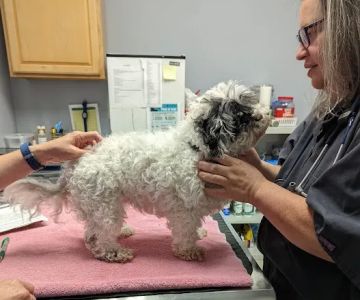- Understanding Fleas on Puppies and Kittens
- Why Natural Flea Treatments Are Important
- Top Natural Remedies for Fleas on Puppies and Kittens
- Practical Tips for Using Natural Flea Treatments Safely
- Where to Find the Best Products and Support
1. Understanding Fleas on Puppies and Kittens
Fleas are tiny parasites that can cause big problems, especially for vulnerable young pets like puppies and kittens. These pests not only cause itching and discomfort but can also lead to serious health issues such as anemia or allergic reactions if left untreated. Understanding how fleas behave and affect puppies and kittens is the first step to effective control. Fleas reproduce rapidly, and a single flea can lay hundreds of eggs, creating an infestation in your pet’s environment. Because young pets have delicate skin and developing immune systems, using harsh chemical treatments can be risky.
Real-life experiences shared by pet owners emphasize the frustration and worry caused by flea infestations. One story from a Hidden Brook Veterinary client describes how their six-week-old kitten became lethargic due to flea anemia, underscoring the urgency of choosing gentle yet effective treatment methods.
1.1 The Flea Life Cycle and Its Impact
Fleas undergo several stages: egg, larva, pupa, and adult. While adult fleas live on your pet, eggs and larvae often hide in carpets, bedding, and upholstery. This means treating your puppy or kitten alone is insufficient without addressing the environment. Knowing this cycle helps in choosing comprehensive natural flea treatments.
2. Why Natural Flea Treatments Are Important
Many traditional flea control products contain chemicals that can be harmful to puppies and kittens, especially those under 12 weeks old. Natural flea treatments offer a safer alternative that respects the sensitivity of young pets. These remedies often rely on ingredients derived from plants or minerals, which repel or kill fleas without introducing toxic substances into your pet’s body.
In addition to safety, natural treatments support overall pet wellness by avoiding harsh chemicals that might disrupt the skin’s natural barrier or cause allergic reactions. For example, some pet owners have reported improved skin health and reduced irritation after switching to herbal flea remedies.
2.1 Balancing Effectiveness and Safety
While natural treatments are generally gentler, their effectiveness can vary depending on severity and individual pet reactions. A personalized approach—often recommended by veterinarians—is key. Using natural flea treatments in combination with environmental control and regular grooming can yield excellent results without compromising safety.
3. Top Natural Remedies for Fleas on Puppies and Kittens
Several natural options have proven effective for flea control in young pets. Below are some of the most commonly recommended remedies, each with their benefits and considerations:
3.1 Apple Cider Vinegar (ACV)
Apple cider vinegar works by creating a less hospitable environment for fleas on your pet’s skin and fur. Diluted ACV can be used as a spray or rinse, helping to repel fleas naturally. However, it should never be applied to open wounds or irritated skin, which is common in flea-infested pets.
3.2 Diatomaceous Earth (Food Grade)
Diatomaceous earth is a powder made from fossilized algae. It works mechanically by dehydrating fleas. When applied carefully to pet bedding and safe areas, it can reduce flea populations effectively. Always ensure it is food-grade quality to avoid harm to your pet’s respiratory system.
3.3 Essential Oils (Used with Caution)
Certain essential oils, such as lavender, cedarwood, or peppermint, have flea-repellent properties. However, many essential oils can be toxic to puppies and kittens if not diluted properly. It is crucial to consult with a veterinary professional before use and apply them sparingly and diluted.
3.4 Herbal Flea Collars and Shampoos
Herbal flea collars infused with natural extracts provide continuous protection without chemicals. Similarly, shampoos made with neem oil, eucalyptus, or rosemary can soothe irritated skin while deterring fleas. These products often combine pleasant scents with gentle flea control.
4. Practical Tips for Using Natural Flea Treatments Safely
Applying natural flea treatments effectively requires care and attention. Here are several practical suggestions:
4.1 Consult Your Veterinarian
Before starting any treatment, especially with puppies or kittens, consult a veterinary professional. They can recommend products that are both safe and suited to your pet’s age and health status.
4.2 Consistency Is Key
Natural remedies often need to be applied regularly and combined with thorough cleaning of your pet’s environment to break the flea life cycle effectively.
4.3 Avoid Overuse or Misuse
Over-applying natural substances, especially essential oils, can cause skin irritation or toxicity. Always follow dosage instructions and observe your pet for any adverse reactions.
4.4 Combine Treatments
Using a multi-pronged approach — grooming your pet, washing bedding, vacuuming frequently, and applying natural treatments — increases the chances of success.
5. Where to Find the Best Products and Support
If you are looking for trusted natural flea treatments for puppies and kittens, Hidden Brook Veterinary offers a carefully curated selection of safe, effective products tailored for young pets. Beyond products, the veterinary team provides expert advice and personalized recommendations to help you choose the most suitable solutions for your pet’s unique needs.
Many pet owners find peace of mind knowing they have a reliable partner to turn to, especially when managing flea infestations in sensitive puppies and kittens. Professional guidance combined with natural remedies creates a balanced approach that prioritizes your pet’s health and comfort.












